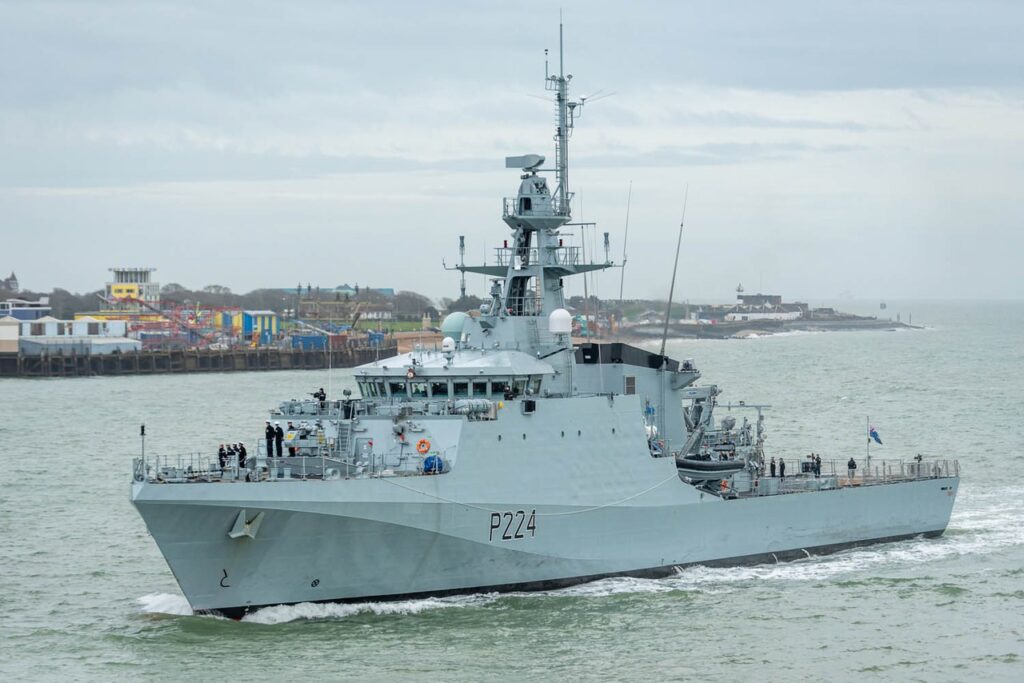By Matt Willgress
A significant development took place recently with regards to British foreign policy. A meeting of The Permanent Conference of Political Parties of Latin America and the Caribbean (Copppal) condemned the recent sending to Guyana’s Coast of a British warship, which the British Government has stationed as part of its ‘regime change’ agenda against Venezuela’s Government – and at the behest of oil companies keen to exploit off-shore deposits in the region.
The communiqué issued by Copppal on behalf of more than 70 political parties from 30 countries made “a call to the Government of Great Britain to withdraw this warship.”
Guyana and Venezuela have established a direct dialogue to resolve the decades-long territorial dispute over the Essequibo region, with the support of the overwhelming majority of Latin American and Caribbean governments, including Lula’s Brazil. So the provocative sending of this warship can also be seen as an effort to torpedo diplomatic efforts.
As Copppal’s put it, The current situation in the area could… dynamite the first agreements reached between Venezuela and Guyana in Saint Vincent and the Grenadines, which resulted in the Argyle Declaration.”
This is a vital point as under the Argyle agreement, Venezuela and Guyana have committed to settle the territorial dispute peacefully and in accord with international law.
The statement adds that “History teaches us that such a provocation, in times of great political and military tension, can lead to a larger-scale conflict, so it is urgent that CELAC [Community of Latin American and Caribbean States] and CARICOM [Caribbean Community] urgently convene both nations and reaffirm the agreements reached.”
This includes the Geneva Agreement of 1966, signed with the British Government by both countries, which accepted that the dispute had not settled fairly by an earlier arbitration agreement in 1899, and set out a protocol for resolving it.
Copppal President Alejandro Moreno Cárdenas has also argued that the presence of the UK warship is not accidental, but a hostile act of provocation, which seeks to influence the negotiations between Venezuela and Guyana on a territory rich in oil, gas, gold and diamonds.
Alejandro Moreno also took the opportunity to warn about broader efforts from the former imperial powers towards the recolonization of the Caribbean, using the power of the big oil companies, saying: “Today the conflict erupted in the Essequibo, but another is on the way in the former Antilles Neerlandezas, where the Netherlands has detected large deposits of gas and oil, mainly in the islands of Curacao and Bonaire, off the coast of Venezuela.”
He added that the UK’s move was contrary to the spirit of the Treaty of Tlatelolco, which defined Latin America and the Caribbean as a region of peace – and called for the UN and its Secretary General António Guterres to rule on the matter.
This development makes it clear that the overwhelming majority of progressive forces in Latin America and the Caribbean believe Sunak’s Government is involved in yet another militaristic adventure to protect the profits of climate vandal, polluting, profiteering multinationals. Political parties in this forum include many that have had massive international support and respect on the left over decades, including the Chilean Socialist Party, the FMLN in El Salvador, the Cuban Communist Party, the People’s National Party of Jamaica and Brazilian Workers’ Party. Additionally, the People’s United Party of Belize, the Dominica Labour Party and the Saint Lucia Labour Party are Copppal members in government in the Caribbean.
Moving forward, with the warning of Sunak going to war in Yemen acting as an alarm bell ringing in our ears, the labour movement and all progressive activists should be extremely vigilant on this issue and call for the withdrawal of the warship – and support regionally facilitated dialogue between Venezuela and Guyana.

